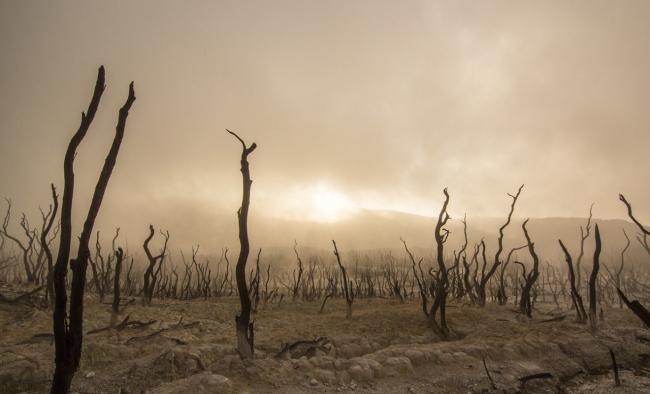Articles Menu

MAY 16, 2021
Farmers in parts of the Prairies are worrying about crop failures and water-deprived livestock, and communities are already facing local water restrictions and at least one forest fire, as the region enters a period of near-record dry conditions.
With one of the most parched springs in recent years coming on the heels of an unusually dry fall, Agriculture and Agri-Food Canada is reporting extreme drought conditions in southwestern Manitoba and southeastern Saskatchewan, with moderate drought across most of the rest of the Prairies, CBC News reports. John Pomeroy, Canada Research Chair in Water Resources and Climate Change, said soil moisture levels are below 40% of normal in some locations.
While droughts are a normal part of the agricultural cycle, this one extends “from Vancouver Island to southern Quebec, down into the United States, into California, right into Mexico,” Pomeroy told CBC. “It’s enormous.”
The impacts will show up quickly in a part of the country that depends on water for irrigation, hydropower, potash mining, and fossil production, CBC says.
“Back about 20 years ago, there were four years where there was a C$10-billion hit to the western Canadian economy from drought and 41,000 jobs lost in Saskatchewan alone. So there’s an impact,” Pomeroy told the national broadcaster. “It’s like losing the automotive industry out of southern Ontario.”
That dire future may not be far away, said Starbuck, MB canola grower Chuck Fossay.
“If we don’t get a rain, a nice, gentle, soaking rain in probably the next two weeks, we’re probably talking a crop failure out here in Manitoba,” Fossay said. “Dry is dry and nothing grows without water. That’s just a fact of life. You need water to live. And if you don’t have enough water, nothing grows.”
“We always say that April showers bring May flowers. Well, it also brings me grass,” said cattle farmer Bill Campbell, president of the Keystone Agriculture Producers advocacy group. When that grass is brittle and dry, herds can eat forage, but only until supplies run out.
Beyond that, “we rely on retention ponds, dugouts, springs, creeks, various water streams,” he told CBC. “A lot of them are dry, and cattle will not survive without water.”
Dave Sauchyn, a researcher at the University of Regina’s Prairie Adaptation Research Collaborative who co-authored a report on climate impacts and adaptation, said small, rural communities with less reliable water supplies are at risk when wells and reservoirs are depleted. Already, CBC says, one southern Manitoba community has asked residents to cut their water consumption 25%, the province has banned campfires and closed back country trails in drought-stricken areas, and a forest fire has hit Whiteshell Provincial Park, near the Ontario border.
[Top photo: Free-Photos/Pixabay]